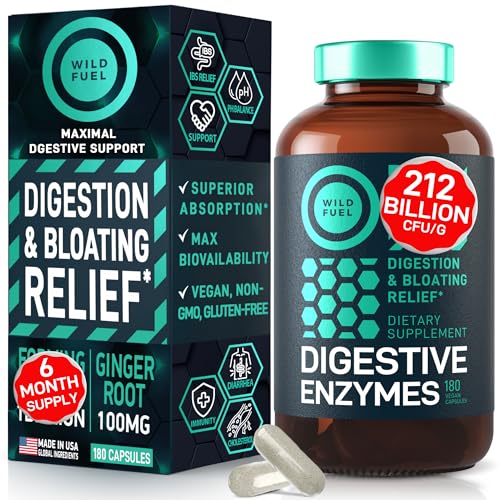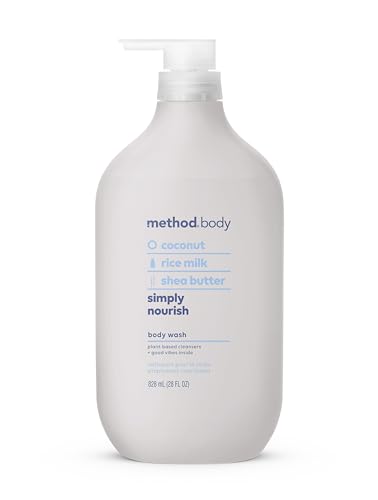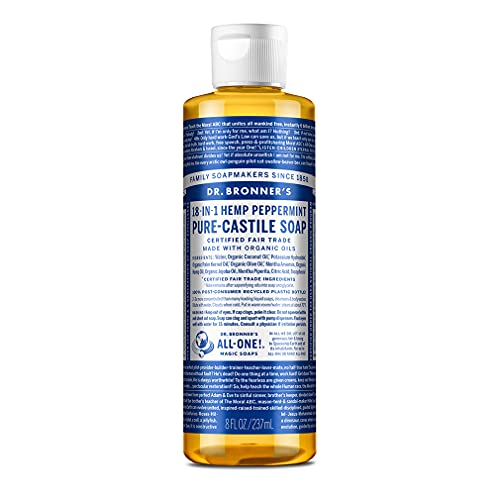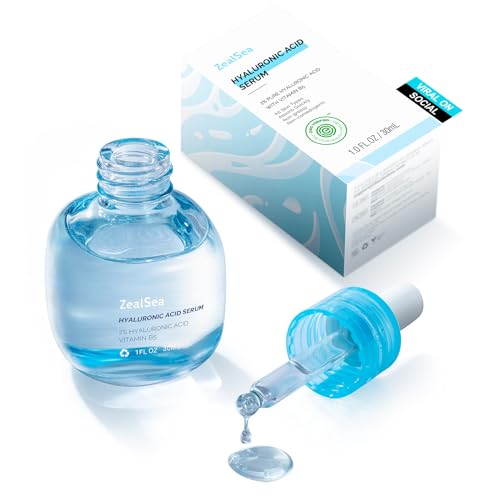
Vegan Digestive Enzymes with Probiotics & Prebiotics - Bloating Relief, Gut Health - 180 Caps


Protease
Medium RiskProtease is an enzyme capable of hydrolyzing proteins into smaller peptides or amino acids, facilitating various biological processes. It is commonly used in food processing, detergents, and pharmaceuticals for its ability to break down proteins, enhancing digestion and improving product efficacy.
Sustai Insights
Protease offers functional benefits in various applications, including digestion enhancement and protein breakdown in food processing. While generally considered low risk for carcinogenicity and developmental toxicity, it poses moderate allergy and immunotoxicity concerns. Additionally, it is not currently restricted by regulatory bodies. Environmental risks are minimal, though care should be taken regarding exposure levels. Overall, its risk level is assessed as medium, suggesting caution in usage practices. Alternatives such as plant-based enzymes may provide safer options.
Fucus Vesiculosus
Medium RiskFucus vesiculosus, commonly known as bladderwrack, is a brown seaweed that is primarily used in skin care and dietary supplements. Its high content of vitamins, minerals, and antioxidants contributes to its role in promoting skin health and overall wellness.
Sustai Insights
Fucus vesiculosus offers functional benefits such as antioxidant properties and potential skin nourishment. It is generally recognized as safe, with low concerns regarding carcinogenicity, allergies, and developmental toxicity. However, it may exhibit low to moderate endocrine disruption potential, and its environmental impact includes risks of pollution and bioaccumulation. Regulatory bodies have issued restrictions on its use due to contamination concerns. Overall, the ingredient poses a medium risk, and users are advised to monitor exposure levels. Alternatives include other seaweeds or plant extracts with similar beneficial properties.
Algin
Medium RiskAlgin is a sodium salt of alginic acid, derived from brown seaweed. It is commonly used as a thickening agent, emulsifier, and stabilizer in various food and cosmetic products. Its ability to form gels and retain moisture makes it valuable in formulations requiring texture and consistency.
Sustai Insights
Algin provides functional benefits such as thickening and stabilizing properties in formulations and is derived from renewable marine sources, contributing to its sustainability credentials. While health risks are low regarding carcinogenicity, allergies, and reproductive toxicity, there are concerns about contamination. Environmental risks include potential pollutants and bioaccumulation. Regulatory bodies have not issued significant warnings, indicating a moderate risk level overall. Safe usage practices should be observed, and alternatives like other plant-derived thickeners may be considered for those seeking varied sourcing.
Lipase
Medium RiskLipase is an enzyme that hydrolyzes triglycerides, facilitating the digestion and absorption of fats in the body. It plays a crucial role in lipid metabolism and is commonly used in various food and dietary products to enhance fat breakdown.
Sustai Insights
Lipase serves as an effective digestive aid, promoting fat metabolism and improving nutrient absorption. It is generally recognized as safe, with low concerns regarding carcinogenicity and developmental toxicity. However, there is a moderate risk of allergies and immunotoxicity. Environmental impacts are minimal, but regulatory bodies have placed some restrictions on specific uses. Overall, the risk level is assessed as medium, and users should follow safe usage recommendations. Alternatives such as other digestive enzymes may offer similar benefits.
Hydroxymethylcellulose
Low RiskHydroxymethylcellulose is a synthetic polymer derived from cellulose, primarily used as a thickening agent, emulsifier, and film-forming agent in various personal care and cosmetic products. It enhances texture, stability, and moisture retention, making it suitable for use in creams, lotions, and gels.
Sustai Insights
Hydroxymethylcellulose serves effectively as a thickener and stabilizer, contributing to product texture and moisture retention. It is considered low risk for health concerns such as carcinogenicity, allergies, and reproductive toxicity. Environmentally, it is not classified as a pollutant or bioaccumulative, aligning with regulatory standards in multiple regions. Overall, its risk level is assessed as low, with no significant adverse effects reported. Safe usage practices should be followed, and while alternatives exist, hydroxymethylcellulose remains a suitable choice in formulations.
Bifidobacterium Longum
Low RiskBifidobacterium longum is a type of beneficial bacteria commonly found in the human gut. It plays a key role in maintaining gut health, supporting digestion, and enhancing the immune response. Its primary function in products is often as a probiotic ingredient, promoting a balanced microbiome.
Sustai Insights
Bifidobacterium longum offers functional benefits as a probiotic, contributing to digestive health and immune support. It is considered low risk for health concerns such as carcinogenicity, allergies, or reproductive toxicity. Environmentally, it poses minimal risks, with no significant pollutant or bioaccumulation potential. Regulatory bodies do not impose restrictions on its use, indicating a favorable status. Overall, this ingredient can be safely used in products, making it a low-risk option for consumers.
Lactobacillus Reuteri
Low RiskLactobacillus reuteri is a probiotic bacterium commonly found in the human gut. It plays a significant role in maintaining gut health and is utilized in various dietary supplements and fermented foods for its potential benefits in promoting digestion and overall wellness.
Sustai Insights
Lactobacillus reuteri offers functional benefits as a probiotic, aiding in gut health and potentially enhancing immune function. It is considered low risk for health concerns such as cancer, allergies, and reproductive toxicity. Environmental impacts are minimal, with no significant pollutant or bioaccumulation concerns. Regulatory bodies have not issued restrictions on its use, affirming its safety profile. Safe usage practices include adhering to recommended dosages. Overall, it is assessed to have a low risk, making it a favorable option in probiotic formulations.
Inulin
Low RiskInulin is a polysaccharide that functions primarily as a dietary fiber and prebiotic, often used to enhance the texture and nutritional profile of various food products. It is derived from plants like chicory and is known for its ability to improve digestive health and promote beneficial gut bacteria.
Sustai Insights
Inulin offers functional benefits as a prebiotic, supporting gut health and enhancing food texture. It is biodegradable and sustainably sourced from plants, contributing to environmentally friendly practices. Health risks are low, with minimal concerns regarding carcinogenicity and allergies. While regulatory restrictions apply to certain products, overall, the ingredient is considered low risk. Safe usage involves adhering to recommended dietary levels, and alternatives like other soluble fibers can be considered for those seeking different options.
Carica Papaya (Papaya) Fruit Extract
Low RiskCarica papaya (papaya) fruit extract is an ingredient derived from the fruit of the papaya plant, primarily known for its enzymatic properties. It is commonly used in cosmetic formulations for its potential exfoliating and moisturizing effects, contributing to skin care products aimed at improving skin texture.
Sustai Insights
Carica papaya fruit extract offers functional benefits such as exfoliation and hydration due to its natural enzymes, which can enhance skin texture. It is typically sustainably sourced and biodegradable. Health risks are minimal, with low concerns for carcinogenicity, allergies, or reproductive toxicity. Environmental impacts are not significant, and regulatory bodies do not impose restrictions on its use. Overall, the ingredient is considered low risk, making it a safe choice in cosmetic formulations.
Zingiber Officinale (Ginger) Root Extract
Low RiskZingiber officinale (ginger) root extract is derived from the ginger plant, widely recognized for its use in culinary applications and traditional medicine. It serves various functions in products, including flavor enhancement and potential therapeutic benefits due to its bioactive compounds.
Sustai Insights
Ginger root extract offers functional benefits such as flavoring and possible anti-inflammatory properties. It is sustainably sourced and biodegradable. Health risks are low, with minimal concerns regarding carcinogenicity, allergies, or reproductive toxicity. Environmental risks appear low, with no significant pollutants. Regulatory status is favorable, with no major warnings. Overall, the risk level associated with ginger root extract is low, making it a suitable ingredient in various applications.
Spirulina
Low RiskSpirulina is a blue-green microalga known for its high nutritional profile, including proteins, vitamins, and antioxidants. It is commonly used as a dietary supplement and ingredient in health foods, offering various functional benefits such as promoting energy and supporting immune health.
Sustai Insights
Spirulina is recognized for its functional benefits, including high protein content and antioxidant properties, making it a valuable dietary supplement. It is sustainably sourced and biodegradable. Health risks are minimal, with low concerns regarding carcinogenicity, allergies, or reproductive toxicity, and it is not subject to significant regulatory restrictions. Overall, the risk level is assessed as low, indicating a favorable profile for use in food and supplements.
Magnesium Stearate
Low RiskMagnesium stearate is a magnesium salt of stearic acid, commonly used as a lubricant and anti-caking agent in pharmaceuticals and cosmetic products. It helps in the manufacturing process by preventing ingredients from clumping together and ensuring even distribution in formulations.
Sustai Insights
Magnesium stearate is recognized for its functional benefits as a lubricant and anti-caking agent, enhancing product stability. It is considered low risk regarding health concerns, including carcinogenicity and allergenic potential, with no significant environmental hazards reported. Regulatory bodies, including the FDA, have not imposed major restrictions, supporting its safe use in various applications. Recommended usage levels are typically low, maintaining safety in formulations. Overall, the ingredient is assessed as low risk, with no significant adverse health or environmental impacts identified.
Lactobacillus Plantarum
Low RiskLactobacillus plantarum is a type of beneficial bacteria commonly found in fermented foods. It functions primarily as a probiotic, promoting gut health by maintaining a balanced microbiome and supporting digestion. This ingredient is often included in dietary supplements and functional foods for its health benefits.
Sustai Insights
Lactobacillus plantarum provides functional benefits as a probiotic, contributing to digestive health and gut flora balance. It is not associated with significant health risks, as concerns related to carcinogenicity, allergies, and reproductive toxicity are low. Environmentally, it poses minimal risks. Regulatory bodies have not issued any warnings or restrictions for its use, indicating a low overall risk. Safe usage practices include following recommended dosages, and alternatives like other probiotic strains may be considered. Overall, this ingredient is assessed as low risk.
Apple Pectin
Low RiskApple pectin is a natural polysaccharide found in the cell walls of apples. It is commonly used as a gelling agent, thickener, and stabilizer in food products, as well as in cosmetics and pharmaceuticals. Its gelling properties are utilized to improve texture and consistency.
Sustai Insights
Apple pectin serves as an effective thickener and stabilizer, contributing to the texture of various products. It is biodegradable and derived from renewable sources, enhancing its sustainability profile. Health risks are minimal, with low concerns for carcinogenicity, allergies, or reproductive toxicity. Environmental impact is also low, with no known pollutants or bioaccumulation issues. Regulatory status is clear, with no current restrictions. Overall, the risk level associated with apple pectin is low, making it a safe ingredient for use in formulations.
Hydroxymethylcellulose
Low RiskHydroxymethylcellulose is a synthetic polymer derived from cellulose, primarily used as a thickening agent, emulsifier, and film-forming agent in various personal care and cosmetic products. It enhances texture, stability, and moisture retention, making it suitable for use in creams, lotions, and gels.
Sustai Insights
Hydroxymethylcellulose serves effectively as a thickener and stabilizer, contributing to product texture and moisture retention. It is considered low risk for health concerns such as carcinogenicity, allergies, and reproductive toxicity. Environmentally, it is not classified as a pollutant or bioaccumulative, aligning with regulatory standards in multiple regions. Overall, its risk level is assessed as low, with no significant adverse effects reported. Safe usage practices should be followed, and while alternatives exist, hydroxymethylcellulose remains a suitable choice in formulations.
Bifidobacterium Longum
Low RiskBifidobacterium longum is a type of beneficial bacteria commonly found in the human gut. It plays a key role in maintaining gut health, supporting digestion, and enhancing the immune response. Its primary function in products is often as a probiotic ingredient, promoting a balanced microbiome.
Sustai Insights
Bifidobacterium longum offers functional benefits as a probiotic, contributing to digestive health and immune support. It is considered low risk for health concerns such as carcinogenicity, allergies, or reproductive toxicity. Environmentally, it poses minimal risks, with no significant pollutant or bioaccumulation potential. Regulatory bodies do not impose restrictions on its use, indicating a favorable status. Overall, this ingredient can be safely used in products, making it a low-risk option for consumers.
Protease
Medium RiskProtease is an enzyme capable of hydrolyzing proteins into smaller peptides or amino acids, facilitating various biological processes. It is commonly used in food processing, detergents, and pharmaceuticals for its ability to break down proteins, enhancing digestion and improving product efficacy.
Sustai Insights
Protease offers functional benefits in various applications, including digestion enhancement and protein breakdown in food processing. While generally considered low risk for carcinogenicity and developmental toxicity, it poses moderate allergy and immunotoxicity concerns. Additionally, it is not currently restricted by regulatory bodies. Environmental risks are minimal, though care should be taken regarding exposure levels. Overall, its risk level is assessed as medium, suggesting caution in usage practices. Alternatives such as plant-based enzymes may provide safer options.
Lactobacillus Reuteri
Low RiskLactobacillus reuteri is a probiotic bacterium commonly found in the human gut. It plays a significant role in maintaining gut health and is utilized in various dietary supplements and fermented foods for its potential benefits in promoting digestion and overall wellness.
Sustai Insights
Lactobacillus reuteri offers functional benefits as a probiotic, aiding in gut health and potentially enhancing immune function. It is considered low risk for health concerns such as cancer, allergies, and reproductive toxicity. Environmental impacts are minimal, with no significant pollutant or bioaccumulation concerns. Regulatory bodies have not issued restrictions on its use, affirming its safety profile. Safe usage practices include adhering to recommended dosages. Overall, it is assessed to have a low risk, making it a favorable option in probiotic formulations.
Fucus Vesiculosus
Medium RiskFucus vesiculosus, commonly known as bladderwrack, is a brown seaweed that is primarily used in skin care and dietary supplements. Its high content of vitamins, minerals, and antioxidants contributes to its role in promoting skin health and overall wellness.
Sustai Insights
Fucus vesiculosus offers functional benefits such as antioxidant properties and potential skin nourishment. It is generally recognized as safe, with low concerns regarding carcinogenicity, allergies, and developmental toxicity. However, it may exhibit low to moderate endocrine disruption potential, and its environmental impact includes risks of pollution and bioaccumulation. Regulatory bodies have issued restrictions on its use due to contamination concerns. Overall, the ingredient poses a medium risk, and users are advised to monitor exposure levels. Alternatives include other seaweeds or plant extracts with similar beneficial properties.
Algin
Medium RiskAlgin is a sodium salt of alginic acid, derived from brown seaweed. It is commonly used as a thickening agent, emulsifier, and stabilizer in various food and cosmetic products. Its ability to form gels and retain moisture makes it valuable in formulations requiring texture and consistency.
Sustai Insights
Algin provides functional benefits such as thickening and stabilizing properties in formulations and is derived from renewable marine sources, contributing to its sustainability credentials. While health risks are low regarding carcinogenicity, allergies, and reproductive toxicity, there are concerns about contamination. Environmental risks include potential pollutants and bioaccumulation. Regulatory bodies have not issued significant warnings, indicating a moderate risk level overall. Safe usage practices should be observed, and alternatives like other plant-derived thickeners may be considered for those seeking varied sourcing.
Inulin
Low RiskInulin is a polysaccharide that functions primarily as a dietary fiber and prebiotic, often used to enhance the texture and nutritional profile of various food products. It is derived from plants like chicory and is known for its ability to improve digestive health and promote beneficial gut bacteria.
Sustai Insights
Inulin offers functional benefits as a prebiotic, supporting gut health and enhancing food texture. It is biodegradable and sustainably sourced from plants, contributing to environmentally friendly practices. Health risks are low, with minimal concerns regarding carcinogenicity and allergies. While regulatory restrictions apply to certain products, overall, the ingredient is considered low risk. Safe usage involves adhering to recommended dietary levels, and alternatives like other soluble fibers can be considered for those seeking different options.
Carica Papaya (Papaya) Fruit Extract
Low RiskCarica papaya (papaya) fruit extract is an ingredient derived from the fruit of the papaya plant, primarily known for its enzymatic properties. It is commonly used in cosmetic formulations for its potential exfoliating and moisturizing effects, contributing to skin care products aimed at improving skin texture.
Sustai Insights
Carica papaya fruit extract offers functional benefits such as exfoliation and hydration due to its natural enzymes, which can enhance skin texture. It is typically sustainably sourced and biodegradable. Health risks are minimal, with low concerns for carcinogenicity, allergies, or reproductive toxicity. Environmental impacts are not significant, and regulatory bodies do not impose restrictions on its use. Overall, the ingredient is considered low risk, making it a safe choice in cosmetic formulations.
Zingiber Officinale (Ginger) Root Extract
Low RiskZingiber officinale (ginger) root extract is derived from the ginger plant, widely recognized for its use in culinary applications and traditional medicine. It serves various functions in products, including flavor enhancement and potential therapeutic benefits due to its bioactive compounds.
Sustai Insights
Ginger root extract offers functional benefits such as flavoring and possible anti-inflammatory properties. It is sustainably sourced and biodegradable. Health risks are low, with minimal concerns regarding carcinogenicity, allergies, or reproductive toxicity. Environmental risks appear low, with no significant pollutants. Regulatory status is favorable, with no major warnings. Overall, the risk level associated with ginger root extract is low, making it a suitable ingredient in various applications.
Spirulina
Low RiskSpirulina is a blue-green microalga known for its high nutritional profile, including proteins, vitamins, and antioxidants. It is commonly used as a dietary supplement and ingredient in health foods, offering various functional benefits such as promoting energy and supporting immune health.
Sustai Insights
Spirulina is recognized for its functional benefits, including high protein content and antioxidant properties, making it a valuable dietary supplement. It is sustainably sourced and biodegradable. Health risks are minimal, with low concerns regarding carcinogenicity, allergies, or reproductive toxicity, and it is not subject to significant regulatory restrictions. Overall, the risk level is assessed as low, indicating a favorable profile for use in food and supplements.
Magnesium Stearate
Low RiskMagnesium stearate is a magnesium salt of stearic acid, commonly used as a lubricant and anti-caking agent in pharmaceuticals and cosmetic products. It helps in the manufacturing process by preventing ingredients from clumping together and ensuring even distribution in formulations.
Sustai Insights
Magnesium stearate is recognized for its functional benefits as a lubricant and anti-caking agent, enhancing product stability. It is considered low risk regarding health concerns, including carcinogenicity and allergenic potential, with no significant environmental hazards reported. Regulatory bodies, including the FDA, have not imposed major restrictions, supporting its safe use in various applications. Recommended usage levels are typically low, maintaining safety in formulations. Overall, the ingredient is assessed as low risk, with no significant adverse health or environmental impacts identified.
Lipase
Medium RiskLipase is an enzyme that hydrolyzes triglycerides, facilitating the digestion and absorption of fats in the body. It plays a crucial role in lipid metabolism and is commonly used in various food and dietary products to enhance fat breakdown.
Sustai Insights
Lipase serves as an effective digestive aid, promoting fat metabolism and improving nutrient absorption. It is generally recognized as safe, with low concerns regarding carcinogenicity and developmental toxicity. However, there is a moderate risk of allergies and immunotoxicity. Environmental impacts are minimal, but regulatory bodies have placed some restrictions on specific uses. Overall, the risk level is assessed as medium, and users should follow safe usage recommendations. Alternatives such as other digestive enzymes may offer similar benefits.
Lactobacillus Plantarum
Low RiskLactobacillus plantarum is a type of beneficial bacteria commonly found in fermented foods. It functions primarily as a probiotic, promoting gut health by maintaining a balanced microbiome and supporting digestion. This ingredient is often included in dietary supplements and functional foods for its health benefits.
Sustai Insights
Lactobacillus plantarum provides functional benefits as a probiotic, contributing to digestive health and gut flora balance. It is not associated with significant health risks, as concerns related to carcinogenicity, allergies, and reproductive toxicity are low. Environmentally, it poses minimal risks. Regulatory bodies have not issued any warnings or restrictions for its use, indicating a low overall risk. Safe usage practices include following recommended dosages, and alternatives like other probiotic strains may be considered. Overall, this ingredient is assessed as low risk.
Apple Pectin
Low RiskApple pectin is a natural polysaccharide found in the cell walls of apples. It is commonly used as a gelling agent, thickener, and stabilizer in food products, as well as in cosmetics and pharmaceuticals. Its gelling properties are utilized to improve texture and consistency.
Sustai Insights
Apple pectin serves as an effective thickener and stabilizer, contributing to the texture of various products. It is biodegradable and derived from renewable sources, enhancing its sustainability profile. Health risks are minimal, with low concerns for carcinogenicity, allergies, or reproductive toxicity. Environmental impact is also low, with no known pollutants or bioaccumulation issues. Regulatory status is clear, with no current restrictions. Overall, the risk level associated with apple pectin is low, making it a safe ingredient for use in formulations.
Experience the benefits of optimal digestion with our Digestive Enzymes with Probiotics and Prebiotics. This vegan supplement combines powerful natural ingredients like Artichoke, Ginger, and Turmeric to enhance gut health and alleviate bloating.
- Enhanced Digestion: Packed with maximum potency vegan enzymes, this supplement eases digestion and reduces discomfort from bloating, pain, and nausea.
- Gut Health Support: Featuring a billion CFU of beneficial bacteria per capsule, it optimizes the digestion of carbohydrates, fats, and proteins, providing effective IBS relief.
- Nutrient Absorption: Boost your nutrient intake with these enzymes, ensuring your body fully absorbs the goodness from every meal.
- Natural Probiotic Blend: Includes a calming mix of probiotics and digestive herbs like fennel and peppermint for overall digestive health.
- Plant-Based Formula: Ideal for both men and women, these plant-based enzymes are designed to alleviate symptoms of poor gut health, promoting a balanced digestive system.
Subscribe & Save with Sustai
- Best Price Guarantee: Always enjoy the lowest prices on sustainable home essentials.
- No Surprises: We’ll notify you before shipping. No hidden fees, ever.
- You’re in Charge: Change, pause, or cancel your subscription anytime with ease.
- Eco-Friendly Deliveries: Our grouped shipments mean less packaging and lower emissions.
Join us on a sustainable journey. Special offers for a limited time! Prices and promotions may change.
Recommended Products
Experience the benefits of optimal digestion with our Digestive Enzymes with Probiotics and Prebiotics. This vegan supplement combines powerful natural ingredients like Artichoke, Ginger, and Turmeric to enhance gut health and alleviate bloating.
- Enhanced Digestion: Packed with maximum potency vegan enzymes, this supplement eases digestion and reduces discomfort from bloating, pain, and nausea.
- Gut Health Support: Featuring a billion CFU of beneficial bacteria per capsule, it optimizes the digestion of carbohydrates, fats, and proteins, providing effective IBS relief.
- Nutrient Absorption: Boost your nutrient intake with these enzymes, ensuring your body fully absorbs the goodness from every meal.
- Natural Probiotic Blend: Includes a calming mix of probiotics and digestive herbs like fennel and peppermint for overall digestive health.
- Plant-Based Formula: Ideal for both men and women, these plant-based enzymes are designed to alleviate symptoms of poor gut health, promoting a balanced digestive system.

You can have at most 2 Sustainable Steals products in your cart
Customer Reviews
Customers’ View
Customers appreciate the effectiveness and vegan-friendly nature of the Digestive Enzymes Supplement. Many report improved digestion, with one noting it helps alleviate bloating and supports daily gut health. Users specifically mention that the capsules are easy to swallow, with no unpleasant aftertaste or odor, making the experience pleasant. The high quality of the ingredients is frequently praised, and several customers value the natural, plant-based formulation. Additionally, eco-conscious consumers appreciate the product's commitment to vegan options and all-natural ingredients. Overall, users find this supplement not only beneficial for digestion but also aligned with their health and environmental values.
AI-generated from the text of customer reviewsThis product has no reviews yet.








